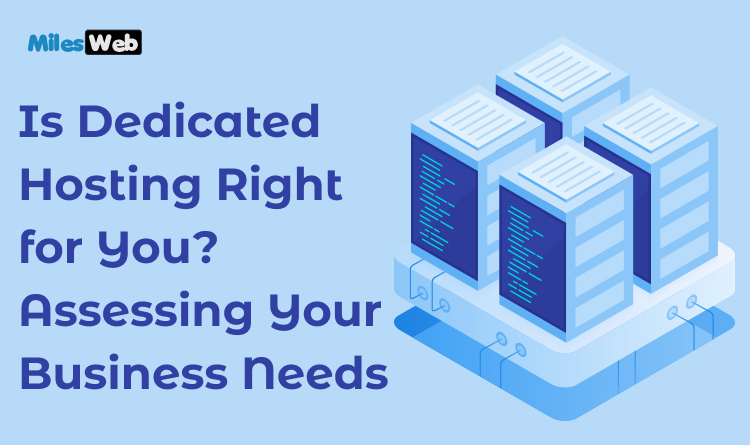

Your search for finding the right supplier for your business begins here. Selling something online is doable, but it only becomes profitable if the products sell. This emphasizes the need to find a reliable source for your products.
Finding the right supplier for your business can be daunting, but all your efforts will be rewarded in the end. Give yourself lead time in sourcing suppliers, including reading this short guide.
1. Find What Products to Sell
Supposing you have no idea what to sell yet, start with profitable product niches. The modern approach is to go to the most popular e-commerce websites or shopping apps and find their best-selling items. If you were to sell similar baby products, a very popular niche, can you offer them at the same or lower prices?
A more traditional yet tried-and-tested approach is to solve a concern or make things better, whether the problem is something personal or a commonly shared one.
If you plan to create a product from scratch, you’d need to communicate and work closely with the supplier. Depending on your agreement, they can source the raw materials or manufacture the product.
You also have to determine your capacity to keep the products in a warehouse, use the dropshipping fulfillment model, or do both for your e-commerce store.
Whether you want to keep inventory or sell ready-made products would impact your choice of a supplier for your business.
2. Set Your Criteria for a Supplier
What are you looking for in a supplier? List down ideal qualities or things that you value in one.
Location: Your business can be based in the United States, while your supplier is in China. This geographical distance is not a barrier, and one can track shipments online. However, COVID-19 has exposed weaknesses in the global supply chain, resulting in disruptions and delays.
So while China remains a top source of affordable finished goods or raw materials, having arrangements with local suppliers can be a measure against supply-chain risks.
Quality: Price is a huge consideration for small businesses and is often the main reason driving their decision in selecting a supplier. But the quality of the products could be at stake here; imagine the company cutting corners to offer their wares for low prices.
It won’t reflect well on your business to be selling low-quality products or be tagged as sketchy even if you are operating legally. Customers can leave bad reviews and stories against your business online for all to see. At the end of the day, pay for something your customers would be willing to pay.
Reliability: You want to be working with a supplier that can deliver what they have promised and as documented on paper. This expectation, along with a verified track record of on-time shipping and delivery, is in keeping with the lead time that they have provided.
And while software and experience can help you forecast demand, some items can go out of stock. Would you be able to place rush orders with the supplier?
It would be in your interest to know how the company deals with lousy weather, understaffing, and disruptions as unforeseen yet inevitable factors affecting their business and yours.
Trustworthiness: Trust is the foundation of your relationship with any entity involved in your business. It’s challenging to evaluate a company’s trustworthiness at this point, but what you can do is to check their business credentials:
- Quality certifications
- Reviews or complaints online
- Business stability, which encompasses the company’s experience in the field and financial health
Checking on foreign suppliers can be complicated by a language barrier or lack of online presence. But if you seek them out through legitimate venues and platforms, as noted below, due diligence is doable.

3. Find Suppliers
There are two primary routes to locate suppliers:
-
Attend Trade Fairs, Shows, and Exhibitions
These events present a venue for buyers and purchasing agents to meet suppliers, manufacturers, and wholesalers. Moreover, they offer an opportunity to see a vast display of products and talk with sellers.
China Import and Export Fair, more popularly known as Canton Fair, is one of the biggest international trading events. The Canton Fair happens every spring and autumn in Guangzhou, China. The latest event combined offline-onsite activities and featured 2.87 million products with 26,000 participating companies and buyers from 228 countries and regions in attendance/registered.
This e-commerce expert shares his experience attending the Canton Fair and insights into finding suppliers in China.
-
Use Online Platforms or Directories
Aside from traveling domestically or abroad, which may not be an option for all, searching for wholesalers or manufacturers on legitimate platforms online is an option.
You may have heard of Alibaba.com, a business-to-business (B2B) e-commerce platform where you can find suppliers. It offers trade assurance, a service designed to protect buyers in case of shipping delays or product quality issues.
Oberlo.com is geared toward dropshipping, which involves selling products online without keeping inventory. The platform gives you access to countless items you can source from a supplier that will ship the items to the customer.
These are examples only; find the best option that meets your requirements.
4. Vet, Shortlist Suppliers
Research, reach out to suppliers.
The goal is to add numbers and pertinent details to your criteria for selecting suppliers, whether you are holding reasonable requirements and whether these can be met vis-a-vis the actual circumstances.
Do the math
Evaluate suppliers by gathering information on the following:
-
Lead time
-
Cost per unit
-
Shipping costs
-
Minimum order quantity
-
Accepted modes of payment
-
Policies on product quality problems
Check values
Confirm the values of the company as well. Do theirs align with your business values? For one, some of today’s customers are more conscious of what they use and care about how the product came to be developed or manufactured.
In this regard, partner with a business that believes in and adopts sustainable and green practices the same way you do.
Get Supporting Data and Documents
Try to request quotations and samples from suppliers on your shortlist. Ask them for a list of references and testimonials from their customers.
You may also be able to get recommendations and referrals from businesses in your network.
Read More : 3 Easy Ways To Access GoDaddy Email Webmail Login 2021
5. Sell Your Products
This circles back to the earlier points about finding what products to sell and where to find them. The next question is how to actually sell the products.
If you are selling something new, you would have to invest more resources in educating customers, who understandably need more information to make a purchase decision. If you are offering products already on the market, you would have to rely on creative and scalable ways to promote them.
Targeted ads can cut through the noise and go straight to people inclined or interested in buying. You can set up and utilize Google Ads for marketing and advertising.
From identifying your audience to crafting a message with keywords that users search, advertising on Google is something you can adapt to your business needs and budget.
And if it doesn’t work or perform as expected, have your account analyzed by an agency specializing in Google Ads. You can achieve your goals or get the most out of your advertising efforts with expert guidance.
Choose the Best for Your Business
Many things go into selecting a supplier or two for your business. Their role merits an approach that sees them as long-term partners for growth and success. And if you have to go all out to find the right fit for your business, do so with a streamlined approach using your tips above.





